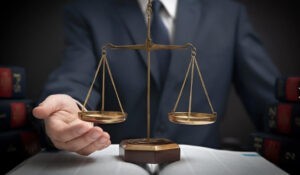Written by Eshti Kapoor
Introduction
Copyright is a type of intellectual property whose value has skyrocketed in recent years as a result of fast technological advancement. Copyright refers to the exclusive right to perform or authorise others to perform specified acts in connection with:
(1) Works of original literature, theatre, music, and art;
(2) Cinematograph films, as well as
(3) Sound recordings
Copyright is, in essence, the right to duplicate or reproduce the work in which it exists. The exclusive right to perform the actions applies not only to the entire work but also to any substantial part of it, as well as any translation or adaptation of it, if applicable. In some circumstances, the term duration of a copyright is the author’s life plus sixty years.
The object of Copyright Law[1]
The purpose of copyright legislation is to encourage authors, musicians, artists, and designers to create unique works by providing them with an exclusive right to exploit the work for monetary advantage for a limited time. Economic exploitation is accomplished by granting exclusive rights to entrepreneurs such as publishers, film producers, and record companies in exchange for a monetary payment.
Copyright Board[2]
In September 1958, the Copyright Board, a quasi-judicial entity, was established. The Copyright Board has authority over the entire country of India. The federal government established the copyright board to carry out certain judicial functions under the Act[3]. The Board is responsible for resolving issues involving copyright registration, assignment of copyright, award of licences for works withheld from the public, unpublished Indian works, production and publication of translations, and works for specific purposes. It also hears cases brought before it under the Copyright Act of 1957 and other matters.
It is made up of a chairman and a maximum of fourteen other members[4]. The Chairman and members will serve for a period of five years. When their term ends, they may be reappointed[5]. A person who is or has been the judge of a High Court, or who is competent for appointment as the judge of the High Court, must be the chairman of the copyright board[6]. The members of the Board do not have any qualifications listed.
The Registrar of Copyright also has a significant role to play. All secretarial tasks of the copyright board will be done by the Registrar of the copyright board[7]. The authority under Section 9 of the Act is the Registrar of the Copyright, who is also an officer of the Copyright Office. The Registrar of Copyright has civil court-like powers[8]. And every order for payment of money issued by the registrar is regarded as a civil court judgement and is enforced as such[9].
Functions of the Copyright Board[10]
The Copyright Board’s principal responsibilities are as follows:
- Settlement of disagreements about whether enough copies of a literary, theatrical, or artistic work or record are made available to the public.
- Settlement of disputes about whether the copyright term for a work is shorter in another nation than it is provided for in any other Act.
- Section 19A deals with the resolution of disputes involving copyright assignments.
- Compulsory licences for Indian works are being concealed from the public.
- Granting of a compulsory licence for the publication of previously unpublished Indian works.
- Granting of a mandatory licence to make and publish literary and theatrical translations.
- A required licence to reproduce and publish literary, scientific, or artistic works for specific purposes is granted.
- Calculation of royalties due to the copyright owner.
- Determination of any objection to Performing Rights Societies’ fees submitted by any person.
- Rectification of the Register on the request of the Registrar of Copyright or any other person who has been wronged.
The Copyright Board does not have the authority to confine the use of copyright to a certain geographical area. Except under Section 6, an appeal against a Copyright Board order must be filed with the High Court in the jurisdiction of the appellant’s residence or place of business.
In the matter of Shri Urmila Charan Gupta vs. Shri Charushila Sharan Gupta and Sumitra Nandand Gupta[11], the Copyright Board’s powers were explained. In this case, it was decided that if the Board, in its discretion, thinks it is appropriate or decides to dispose of all 38 volumes in a single application, no one else has the right to contest its legality.
Conclusion
Different countries have their own Copyright boards. The Copyright Boards’ mission is to collect royalties and take appropriate action against infringement in a variety of copyrighted works. As a result, various Copyright Boards are to assist copyright owners in forming relationships with foreign countries. As a result, Copyright Boards play an important role in encouraging copyright owners to use their rights.
About the Author

Eshti Kapoor
Student at Vivekananda School of Law and Legal Studies, VIPS.
She has participated in various academic events at VSLLS including successfully completing the Legal Drafting and Office Management Course at Vivekananda Institute of Professional Studies. She has a keen interest in writing and has written many articles for various legal blogs. She is an author of “Equal Pay for Equal Work” Research Paper published at Journal of Emerging Technologies and Innovative Research (JETIR)
[1] Working of Copyright Board in India and Procedure for Litigation with regards to Copyright, Nikhil Jain, ITMU Law School, ( https://www.lawctopus.com/academike/working-copyright-board-india-procedure-litigation-regards-copyright/ )
[2] Working of Copyright Board in India and Procedure for Litigation with regards to Copyright, Nikhil Jain, ITMU Law School, ( https://www.lawctopus.com/academike/working-copyright-board-india-procedure-litigation-regards-copyright/ )
[3] Section 11(1) of The Copyright Act, 1957
[4] Section 11(1) of The Copyright Act, 1957
[5] Section 11(3) of The Copyright Act, 1957
[6] Section 11(3) of The Copyright Act, 1957
[7] Section 11(4) read with Section 4(4) of The Copyright Act, 1957
[8] Section 74 of The Copyright Act, 1957
[9] Section 75 of The Copyright Act, 1957
[10] Functions of the Copyright Board, Rashi Nagore, https://www.taxdose.com/functions-of-the-copyright-board/
[11] 1983 PTC 84
Read the Previous Article
Advertising Law: Observing the Fine line Amongst Online Advertising and the Law
Juvenile Delinquency: Criminal Justice System and Youth Development Programme





